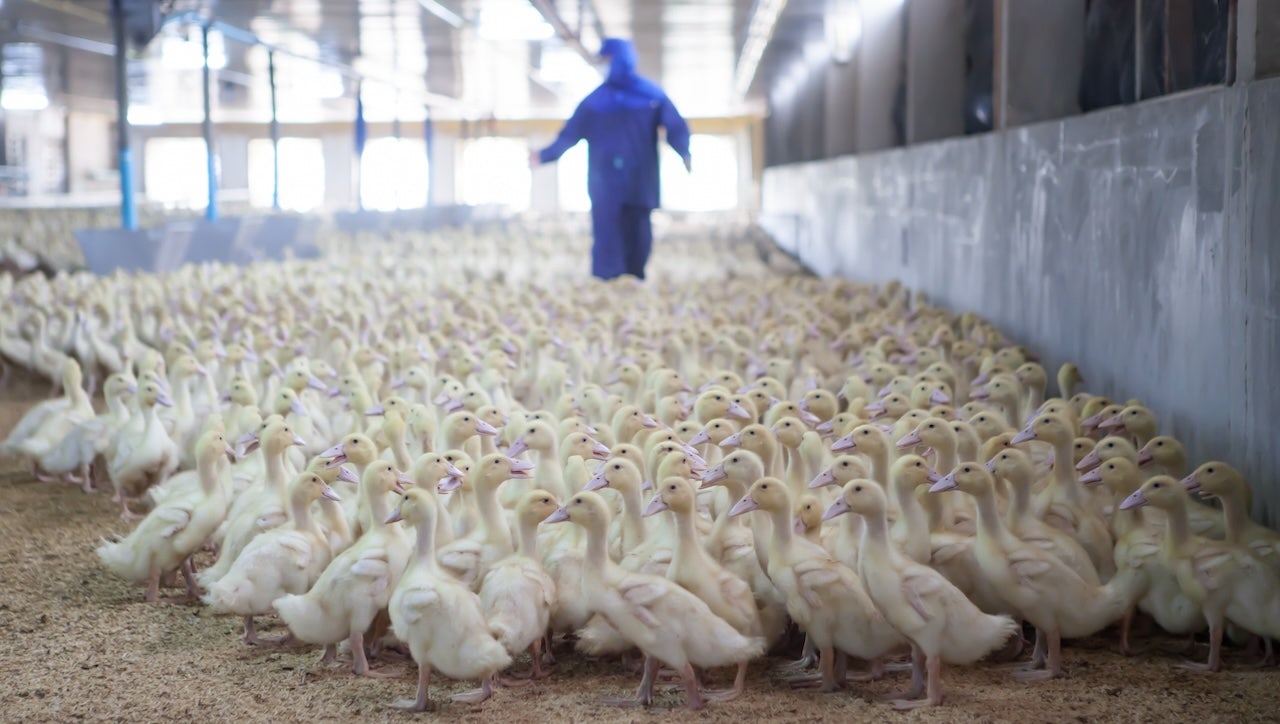Politics
Video: The Latest Challenge to the Voting Rights Act

OPEN: A court recent ruling recently could deliver a death blow to the Voting Rights Act – a law that has protected Black Americans’ political power the voting rights of minority communities for six decades./////A federal appeals court issued a ruling last month on an Arkansas redistricting case that could drastically weaken the Voting Rights Act, a law that has protected minority communities’ political power for almost six decades. ALT: A recent court ruling could make it harder for people to challenge state’s racially discriminatory voting practices. ALT : The Voting Rights Act has been the single most …. but a recent court ruling could ALT: As voting rights have become a flash issue, a recent court ruling in Arkansas could….. The ruling by the 8th Circuit appeals court, which is almost certain to be appealed to the Supreme Court, would effectively bar private citizens and civil rights groups from suing under section 2 of the law. To understand that, we need to take a quick look back at the law itself… Background on the Voting Rights Act The Voting Rights Act was signed into law in 1965, and was one of the most significant achievements of the civil rights movement. The law rolled back discriminatory Jim Crow laws that were meant to disenfranchise minority communities. Since then, it has evolved, and it’s been under attack almost since it was passed. Why Section 2 is so important This latest ruling affects Section 2 of the Voting Rights Act, which allows private citizens (and civil rights groups) to fight racially discriminatory voting practices by states. Over the years, dozens of lawsuits have used Section 2 to challenge heavily gerrymandered redistricting maps. But in 2021, when voters in Pulaski County, Arkansas challenged a redistricting that diluted the voting power of Black voters Judge Rudofsky, a Trump-appointed federal judge, ruled that “only the attorney general of the United States may bring suit” to enforce Section 2. That decision, which has since been upheld by the 8th Circuit Court, takes the power to file lawsuits to enforce the Voting Rights Act away from individual voters. Legal experts and commentators say this is a very unusual interpretation of the Voting Rights Act. In his dissent, Chief Circuit Judge Lavenski Smith noted that at least 182 successful Section 2 cases have been brought in the past 40 years, only 15 of which were brought solely by the US Justice Department./// Over the past 40 years, more than 90 percent of successful Section 2 cases were brought by individuals or civil rights organizations///Over the past four decades, fewer than 10 percent of successful section 2 cases were brought by the US DOJ The Arkansas ruling is almost certain to be appealed to the Supreme Court. [Several legal experts I spoke with said tktktkt] But for now, it only affects/applies to states in the 8th Circuit’s jurisdiction — Arkansas, Iowa, Minnesota, Missouri, Nebraska, North Dakota and South Dakota. Could it impact any of these states in a way with national resonance? Whether or not the Supreme Court upholds this Eighth Circuit ruling, we’re almost certain to see other challenges to voting rights in the coming months.

Politics
'Important opportunity': DNC chair candidates reveal how they will rebound after disastrous 2024 results
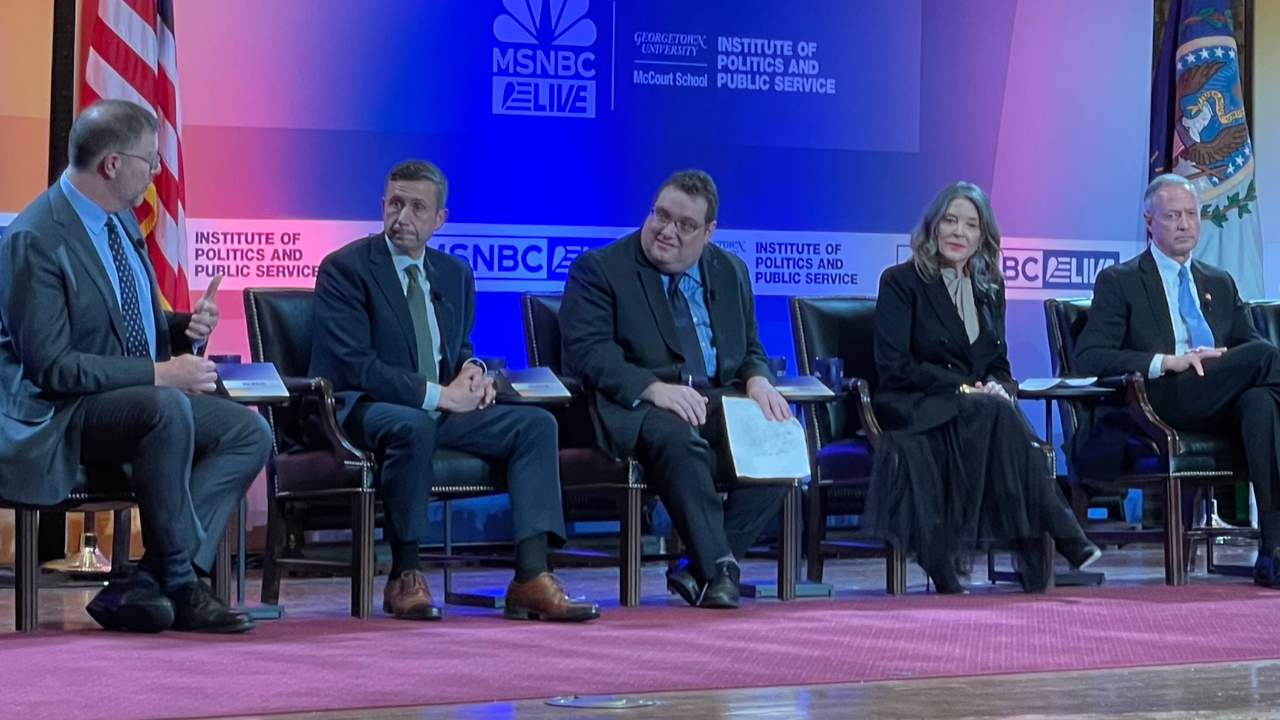
Nearly three months after Democrats’ major setbacks up and down the ballot in the 2024 elections, the party gathers on Saturday to choose new leadership.
It’s the Democratic National Committee’s (DNC) first formal step to try and emerge from the political wilderness and rebound in upcoming elections after President Donald Trump recaptured the White House and Republicans flipped the Senate, held onto their fragile majority in the House and made major gains with working-class, minority and younger voters.
And with no clear leader in the party, the next DNC chair will become the de facto face of Democrats from coast to coast and will make major decisions on messaging, strategy, infrastructure and where to spend millions in political contributions.
“It’s an important opportunity for us to not only refocus the party and what we present to voters, but also an opportunity for us to look at how we internally govern ourselves,” longtime New Hampshire Democratic Party Chair Ray Buckley told Fox News.
DEMOCRATS RALLY AROUND LIGHTENING ROD ISSUE AT FINAL DNC CHAIR DEBATE
The eight candidates vying for Democratic National Committee chair sit for a forum that was repeatedly interrupted by protesters at Georgetown University in Washington, D.C., Jan. 30, 2025. (Fox News/Paul Steinhauser)
Buckley, a former DNC vice chair, said he’s “very excited about the potential of great reform within the party.” And he emphasized he hoped for “significantly more support for the state parties. That’s going to be a critical step towards our return to majority status.”
Eight candidates are vying to succeed DNC Chair Jaime Harrison, who decided against seeking a second straight four-year term steering the national party committee.
FIRST ON FOX: AFTER 2024 ELECTION SETBACKS, DEMOCRATS EYE RURAL VOTERS
The next chair, as well as vice chairs and other officers, will be chosen by the roughly 450 DNC voting members gathered for the party’s winter meeting, which is being held this year at National Harbor just outside Washington, D.C.
Minnesota Democratic-Farmer-Labor Party Chair Ken Martin, a DNC vice chair who has led the association of state Democratic Party chairs, is considered to be the frontrunner for chair heading into Saturday’s election, with Wisconsin Chair Ben Wikler close behind.

Minnesota Democratic Party chair Ken Martin (left) and Wisconsin Chair Ben Wikler (right), two leading contenders in the Democratic National Committee chair race, at the DNC executive committee meeting Dec. 12, 2024, in Washington, D.C. (Fox News/Paul Steinhauser)
Martin recently told Fox News Digital that if he becomes chair, the first thing he would do is “figure out a plan to win. And we need to start writing that plan, making sure we’re looking underneath the hood. How much money do we have at the party? What are the contracts? What contracts do we need to get rid of? And, frankly, bringing all of our stakeholder groups together. That’s the biggest thing.”
DEMOCRATS’ NEW SENATE CAMPAIGN CHAIR REVEALS KEYS TO WINNING BACK MAJORITY IN 2026
Wikler, in a Fox News Digital interview, emphasized that the party needs to show voters “that we’re fighting for them against those who would try to rig the economy for those at the very top and deliver that message in places where people aren’t paying attention to politics much. But they know what they’re struggling with in their own lives.”
Wikler, who pointed to the success of Democrats in his home state, a crucial battleground, added, “That means communicating in clear language in a way that shows people that we see them. And with our actions showing that we’re fighting for them to bring costs down and make sure that working people have a fair shot in this country.”
Also considered competitive is Martin O’Malley, the former two-term Maryland governor and 2016 Democratic presidential candidate who served as commissioner of the Social Security Administration during former President Biden’s last year in office.
DEMOCRATS’ HOUSE CAMPAIGN CHAIR TELLS FOX NEWS HER PLAN TO WIN BACK MAJORITY
O’Malley told Fox News Digital he’s running for DNC chair “because I love my country, and the only way we’re going to save the Republic is if the Democratic Party gets itself battle-ready as quickly as possible.”
Pointing to his past steering the Democratic Governors Association, he noted, “I’m the only candidate that’s actually chaired a national committee — the Democratic Governors — and I’m the only candidate that’s actually run for office and been elected to office, city council, mayor, governor. And we need to recruit people all across the ballot in order to bring our party back.”
Among the longer-shot candidates for chair are late entry Faiz Shakir, who ran the 2020 Democratic presidential campaign of progressive champion Sen. Bernie Sanders of Vermont, and Marianne Williamson, who ran unsuccessfully for the 2020 and 2024 Democratic presidential nominations.
“This party’s not going to rise up unless there’s some deeper honesty,” Williamson told reporters Thursday after the final chair election forum, as she took aim at the Democrats’ establishment.
The debate during the three-month DNC campaign sprint has mostly focused on the logistics of modern political campaigns, such as media strategy and messaging, fundraising and grassroots organizing and get-out-the-vote efforts. On those nuts-and-bolts issues, the candidates are mostly in agreement that changes are needed to win back blue-collar voters who now support Republicans.
But the final forum included a heavy focus on systemic racism and diversity, equity and inclusion (DEI) programs, issues that appeared to hurt Democrats at the ballot box in November.
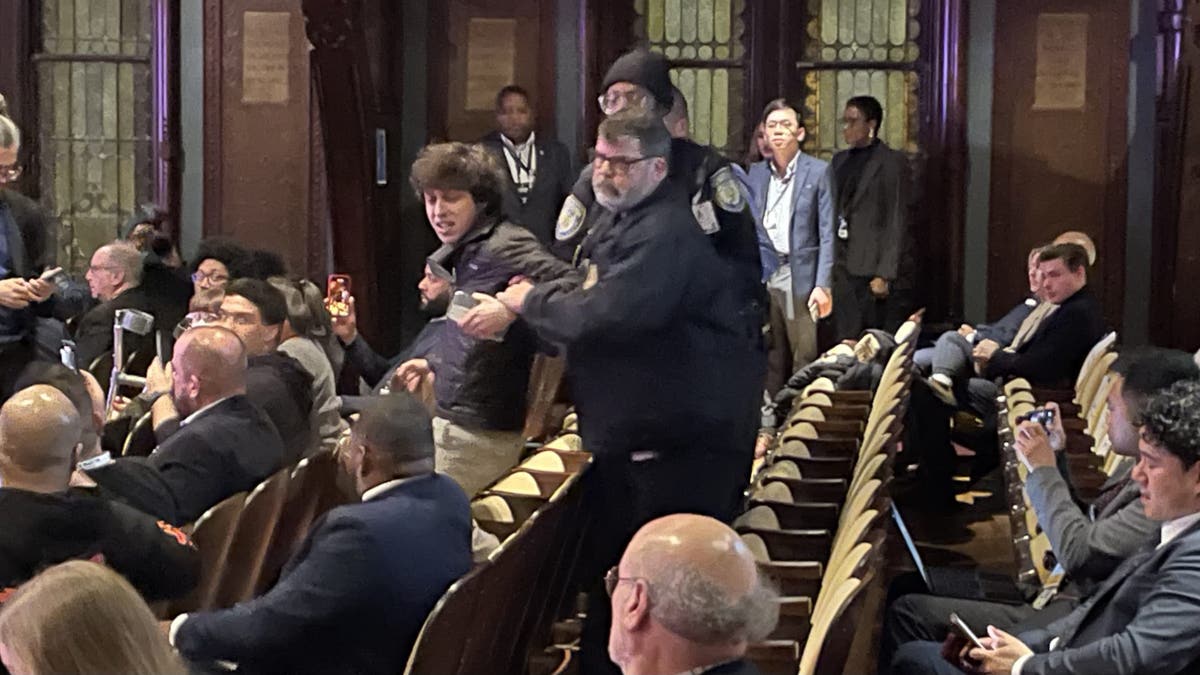
A protester is removed by security after heckling at a Democratic National Committee chair election debate at Georgetown University in Washington, D.C., Jan. 30, 2025 (Fox News/Paul Steinhauser)
And the forum, moderated and carried live on MSNBC and held at Georgetown University in Washington, D.C., devolved into chaos early on as a wave of left-wing protesters repeatedly interrupted the primetime event, heckling over concerns of climate change and billionaires’ influence in America’s elections before they were forcibly removed by security.
The chair election comes as a new national poll spells more trouble for the Democrats.
Only 31% of respondents in a Quinnipiac University survey conducted over the past week had a favorable opinion of the Democratic Party, with 57% seeing the party in an unfavorable light.
“This is the highest percentage of voters having an unfavorable opinion of the Democratic Party since the Quinnipiac University Poll began asking this question,” the survey’s release noted.
Meanwhile, 43% of those questioned had a favorable view of the GOP, with 45% holding an unfavorable opinion, which was the highest favorable opinion for the Republican Party ever in Quinnipiac polling.
Politics
Rubio carries anti-immigration message to Latin America in first trip overseas as Trump's top diplomat

PANAMA CITY — President Trump’s top diplomat makes his first trip overseas this weekend, heading to Central America to drive home the message that the U.S. expects cooperation in its mass deportation of immigrants.
But newly confirmed Secretary of State Marco Rubio will need to be careful to avoid alienating long-standing U.S. allies who say they are already taking a robust role in curbing illegal immigration and accepting deportees.
Panama, Rubio’s first stop late Saturday, is an especially delicate case.
Trump further complicated the immigration question by declaring he wants to seize the Panama Canal, the 50-mile waterway that connects the Pacific and Atlantic oceans and is a key instrument in international shipping that Panama has controlled for a quarter-century.
“This matter is closed,” Panamanian President José Raúl Mulino said at a news conference this week. “The canal is Panama’s.”
Mulino refused to contemplate any “process of negotiation” on the canal, which the U.S. ceded to Panama in 1999, ending a long-standing sore spot of U.S. colonization in Latin America.
For many Panamanians, the canal represents income, employment and identity. Last year, operation of the canal by an independent Panamanian commission contributed $2.4 billion to state coffers.
The canal “is an existential asset” for Panama, said John Feeley, former U.S. ambassador to Panama.
The waterway was cleaved across the most narrow section of the Panamanian isthmus in the late 1800s and early 1900s, by French and then U.S. engineers. Thousands of mostly Caribbean workers died from disease and accidents. Then-President Carter in 1977 signed a treaty giving control of the canal to take full effect two decades later.
In terms of seeking Panama’s cooperation on immigration, the Trump administration would be “knocking on an open door,” Feeley said, given Mulino’s eagerness to assist on the issue. But the canal is a different matter.
“On America taking back the canal, that is not going to happen,” he said. “The only way … the United States will take back control of the canal is if there is another military invasion and occupation. And you show me, even among Trump voters, where the appetite for that is. I don’t think you can find it.”
But Trump claims Chinese influence over the canal now poses a threat to U.S. national security. Trump exaggerates that influence, experts say, but it is true that Chinese-controlled firms own part of a port and other assets. China throughout Latin America has made significant inroads in infrastructure and diplomacy, often taking advantage of U.S. inattention.
The canal is “no longer autonomous — they have to do whatever the [Chinese] government tells them,” Rubio said of the Panamanian administration of the canal during an interview with podcast host Megyn Kelly. “And if the government in China, in a conflict, tells them to shut down the Panama Canal, they will have to.”
He added: “So it’s a technicality, but in reality if China wanted to obstruct traffic in the Panama Canal, they could. … And I think the president’s been pretty clear he wants to administer the canal again.”
Rubio has to balance his boss’ demands with attempting to maintain good relations with countries that for the most part are loyal allies to the U.S., starting with Panama.
“Panama has been very helpful in dealing with its border,” Trump’s special envoy for Latin America, Mauricio Claver-Carone, said Friday in previewing Rubio’s trip.
Relations with Colombia have been more strained.
President Gustavo Petro for more than two years received hundreds of deportation flights from the U.S.
But Sunday he turned back two military flights in which migrants had been shackled. He said would continue to accept flights, but wanted “dignified conditions” for Colombian nationals.
Trump immediately threatened a 25% tariff on Colombian exports — mostly roses, coffee and oil — and prevented thousands of Colombians from obtaining visas to the United States.
The two leaders quickly overcame the row and flights resumed. The Trump administration defended its aggressive approach.
“It sends a message that … there will be consequences,” Claver-Carone said.
Rubio will also travel to El Salvador and Guatemala. In El Salvador, Trump administration officials have praised President Nayib Bukele’s mass incarceration of suspected gang members. It is a system Bukele enacted by suspending his country’s constitution, prompting criticism from human rights groups. Trump administration officials cited it as a potential model for dealing with criminal migrants in the United States.
For the first time in modern history, the State Department is top-heavy with Latin America experts, starting with Rubio.
But Trump has singled a more transactional approach. A policy that for decades focused on the fortifying of democratic institutions and human rights will be replaced with rewards for cooperation on immigration, experts say.
The traditional approach of demanding democracy in some ways gave an opening to China, which never made such demands. The U.S., in contrast to China, came with “a bunch of lessons and no goodie bags,” Ryan Berg, who heads the Americas program at the Center for Strategic and International Studies, a think tank in Washington, said in an interview.
Writing in Foreign Policy, Berg said: “Taking the region for granted as a sphere of U.S. influence has come at a high cost, creating a strategic vacuum in which China and lesser great power rivals have advanced their geopolitical aims with minimal pushback.”
Panama’s role in the immigration puzzle has been primarily to repatriate citizens from other countries who end up stranded in the country as they attempt to move northward. These include people from China, Sudan and other far-flung locations.
The Trump administration’s recent temporary freeze of some foreign aid also hurt Latin America, advocates say, crippling lifesaving food and heath programs.
Politics
White House to impose tariffs on Mexico, Canada and China due to ‘invasion of illegal fentanyl’

White House Press Secretary Karoline Leavitt confirmed that President Donald Trump will execute tariffs on Mexico, Canada and China starting Saturday.
Trump’s economic plan during his campaign called for extending the 2017 tax cuts and imposing tariffs ranging from 10% to 20% on all imported goods. For countries like China, that number could go up to 60%.
TRUMP TREASURY PICK: EXTENDING TRUMP TAX CUTS ‘SINGLE MOST IMPORTANT ECONOMIC ISSUE’
White House Press Secretary Karoline Leavitt holds her first news conference at the White House Jan. 28, 2025, in Washington, D.C. (Chip Somodevilla/Getty Images)
These countries will face these tariffs because they have allowed an “unprecedented invasion of illegal fentanyl that is killing American citizens,” according to Leavitt.
“The president will be implementing tomorrow a 25% tariff on Mexico, 25% tariffs on Canada, and a 10% tariff on China for the illegal fentanyl they have sourced and allowed to distribute into our country, which has killed tens of millions of Americans,” Leavitt told reporters at a Friday White House press briefing. “These are promises made and promises kept.”
CANADA READIES TRUMP TARIFFS RESPONSE: ‘IN A TRADE WAR, THERE ARE NO WINNERS’
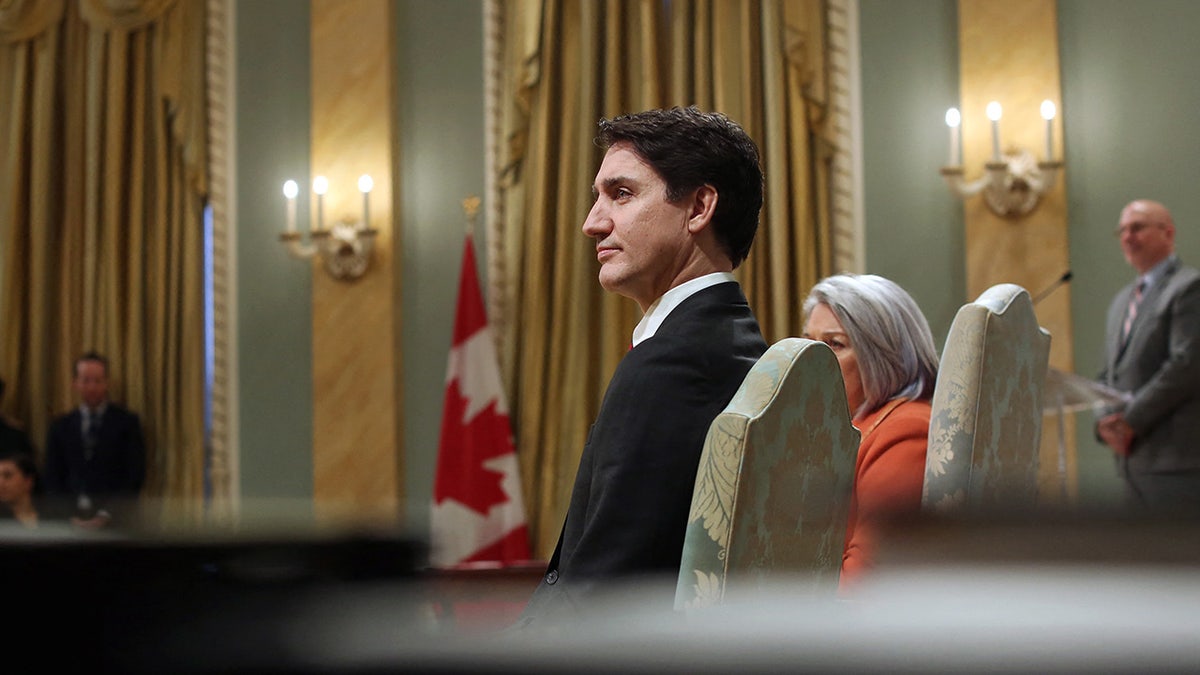
Canadian Prime Minister Justin Trudeau said Friday that Canada was prepared to respond to any U.S. tariffs. (Dave Chan/AFP via Getty Images)
Canadian Prime Minister Justin Trudeau said Friday that Canada was prepared to respond to any tariffs executed, and warned there could be “disastrous consequences” for American workers and consumers.
“We’re ready with a response, a purposeful, forceful but reasonable, immediate response,” Trudeau said. “It’s not what we want, but if he moves forward, we will also act.”
Meanwhile, Leavitt said that the tariffs are not expected to spark a trade war with Canada and that Trump would respond to Trudeau in “due time.”
“The president is intent on doing this,” Leavitt said. “And I think Justin Trudeau would be wise to talk to President Trump directly before pushing outlandish comments like that to the media.”
When asked if Mexico, Canada or China could offer any concessions to remove these new tariffs, Leavitt said Trump would decide at a later date.
“If the president at any time decides to roll back those tariffs, I’ll leave it to him to make that decision,” Leavitt said. “The president is intent on ensuring that he effectively implements tariffs while cutting inflation costs for the American people.”
HOUSE DEMS THREATEN TO BLOCK TRUMP’S BIG TARIFF PLANS: ‘UNACCEPTABLE’
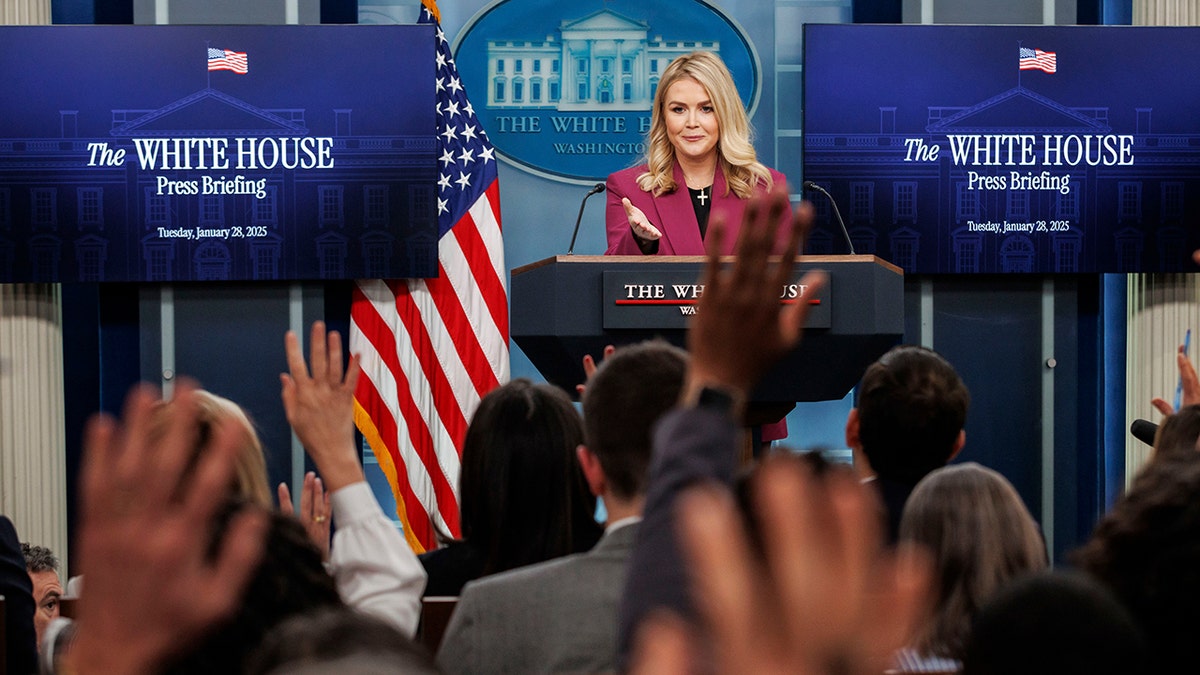
White House Press Secretary Karoline Leavitt confirmed that President Donald Trump will execute tariffs on Mexico, Canada and China starting Saturday. (Samuel Corum/Politico/Bloomberg via Getty Images)
House Republicans moved to reintroduce the U.S. Reciprocal Trade Act on Jan. 24, a measure that would permit Trump to unilaterally impose trade taxes on both adversaries and allies.
Trump previously praised the measure in 2019, claiming it would “give our workers a fair and level playing field against other countries.”
Meanwhile, House Democrats Reps. Suzan DelBene, D-Wash., and Don Beyer, D-Va., also introduced their own legislation in January that would block Trump from using emergency powers to implement tariffs, amid concerns that American consumers would end up footing the bill.
“The American people have clearly and consistently said that the high cost of living is one of their top concerns,” DelBene said in a statement on Jan. 15. “Not only would widespread tariffs drive up costs at home and likely send our economy into recession, but they would likely lead to significant retaliation, hurting American workers, farmers, and businesses.”
The Associated Press and Fox News’ Elizabeth Elkind contributed to this report.
-

 News7 days ago
News7 days agoHamas releases four female Israeli soldiers as 200 Palestinians set free
-

 Business1 week ago
Business1 week agoInstagram and Facebook Blocked and Hid Abortion Pill Providers’ Posts
-
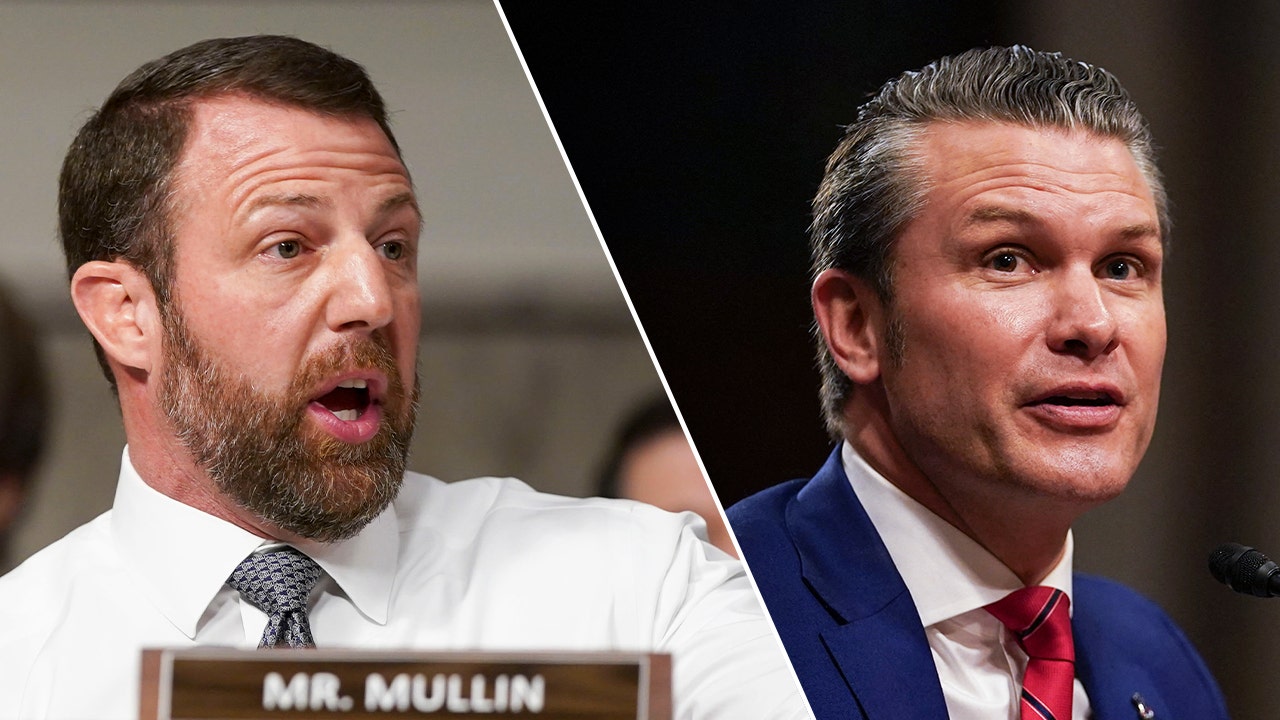
 Politics1 week ago
Politics1 week agoOklahoma Sen Mullin confident Hegseth will be confirmed, predicts who Democrats will try to sink next
-

 Culture4 days ago
Culture4 days agoHow Unrivaled became the WNBA free agency hub of all chatter, gossip and deal-making
-

 Nebraska7 days ago
Nebraska7 days ago3 years of the Nebraska Examiner: Looking back for inspiration and ahead to growth, with your help • Nebraska Examiner
-

 World7 days ago
World7 days agoIsrael Frees 200 Palestinian Prisoners in Second Cease-Fire Exchange
-

 Technology2 days ago
Technology2 days agoMark Zuckerberg says Meta isn’t worried about DeepSeek
-

 Business2 days ago
Business2 days agoTulsi Gabbard Defended Russia and Syria. Now She Must Defend Those Views.









